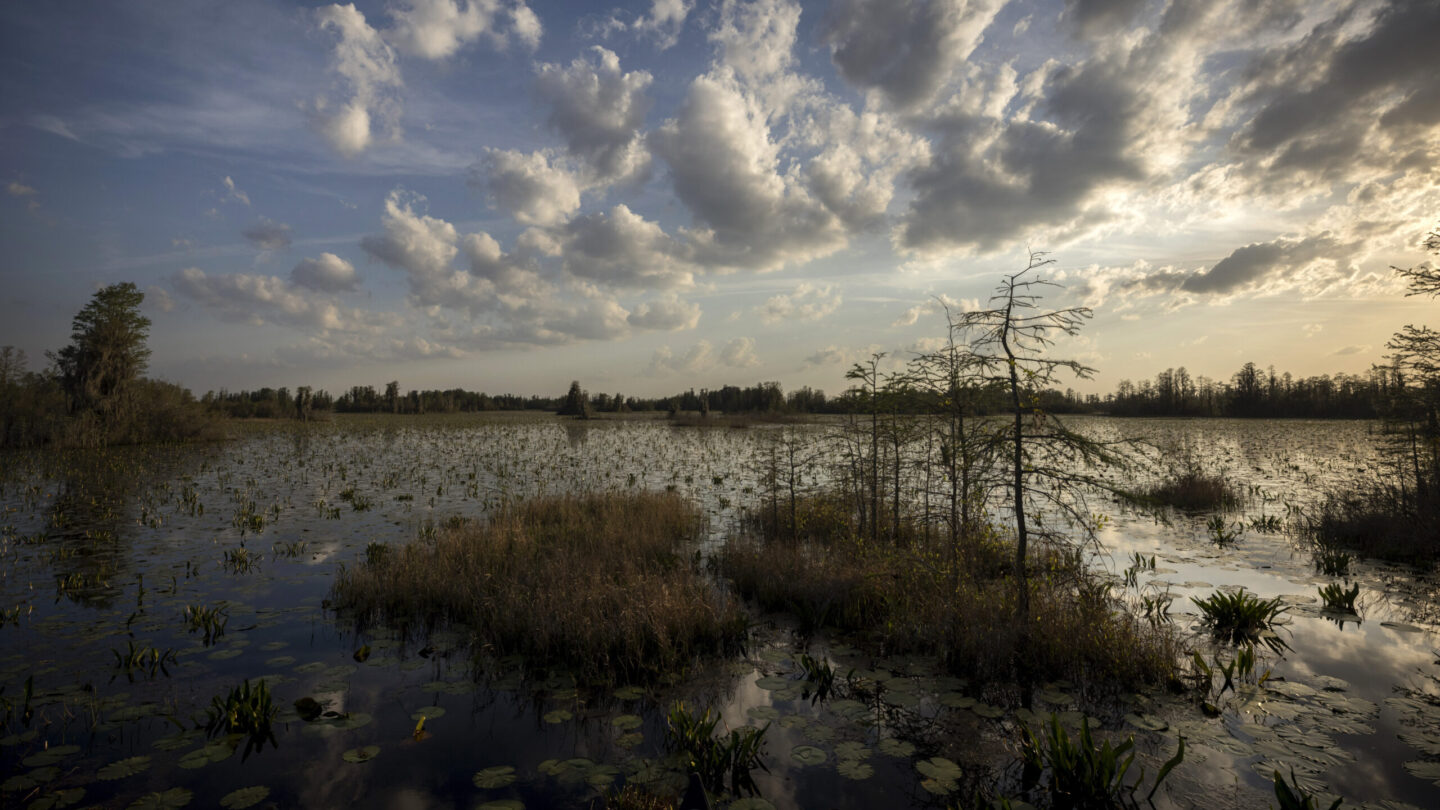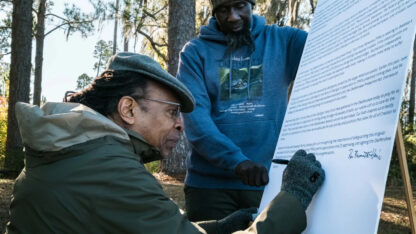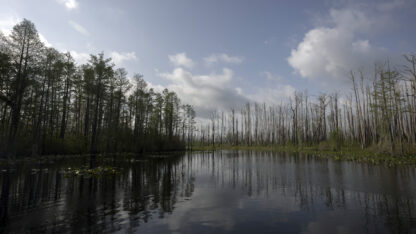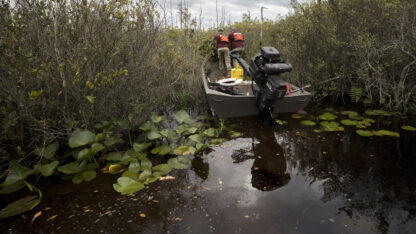This coverage is made possible through a partnership with WABE and Grist, a nonprofit, independent media organization dedicated to telling stories of climate solutions and a just future.
Georgia lawmakers are set to take up the controversial plan for a mine near the Okefenokee National Wildlife Refuge when the legislative session starts later this month. Opponents of the mine are trying several avenues to prevent it, both in and outside of the statehouse.
Alabama-based company Twin Pines wants to mine for minerals like titanium dioxide at a site near the Okefenokee. However, opponents worry mining could disrupt the all-important water balance and harm the swamp ecosystem.
A bill before the state legislature, House Bill 71, seeks to protect the Okefenokee by banning new mining permits within the area. Although it didn’t advance last year, lead sponsor Darlene Taylor said she’s optimistic this time, stating that the bill has support because many Georgians love the swamp.
“It’s a natural wonder of the world,” Taylor said. “It’s very beautiful … there’s no other place like it, and it’s important that we preserve that.”
The bill would only stop future mines or expansions, not those already applying for permits. But opponents are trying other means to block the proposed mine altogether.
One method is pressuring companies not to buy products from a mine near the refuge. In recent months, investment firm Green Century and the Felician Sisters, a Catholic order that seeks to leverage change through shareholder advocacy, have filed shareholder proposals with several companies.
The parties are seeking pledges from the chemical manufacturer Chemours, as well as Home Depot and Sherwin-Williams, which both sell titanium dioxide-based paint, that the companies won’t do business with an Okefenokee mine.
Sister Jean Sliwinski, provincial sustainability coordinator for Felician Sisters, said environmental advocacy is a key part of the Catholic teaching the order follows.
“Sometimes the earth and the creatures of the earth don’t speak, cannot speak,” she said. “What we do happens to them. And sometimes it’s part of our responsibility to be a voice and give the natural world a voice.”
Opponents also plan to speak out against the mine during the state permitting process, which would need several state permits to proceed.
Twin Pines maintains their method of mining would not harm the swamp.









